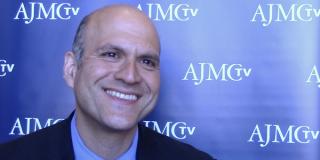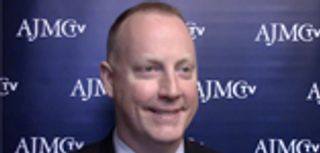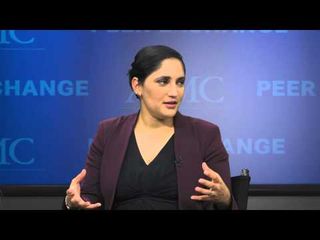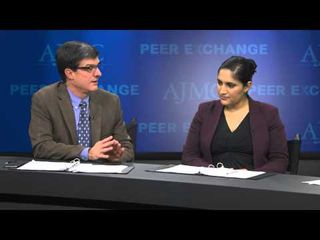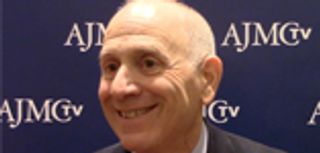
Insurance
Latest News
Latest Videos

CME Content
More News

The number of Medicare Part D enrollees reaching catastrophic coverage increased by more than 50% from 2013 to 2016, according to an analysis form Avalere Health

So far, the move to accountable care has been promising, but more needs to be done to encourage providers into risk, said panelists at The American Journal of Managed Care®’s Accountable Care Delivery Congress.

In a survey released by Community Oncology Alliance (COA), the majority of physicians reported concern over proposals to reform the Medicare Part B program

Another organization has announced a plan for making health coverage affordable, following a spate of similar proposals like “Medicare for All��” and “Medicare Extra for All” and in the wake of continued efforts by the Trump administration to nibble away at the Affordable Care Act (ACA).

A telephonic transitional care program at a rural hospital reduced postdischarge Medicare spending by 31% and reduced inpatient spending for Medicare fee-for-service beneficiaries.
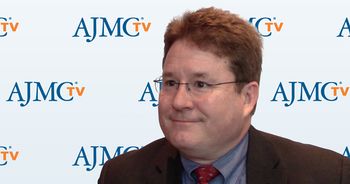
Unlike commercial plans, Medicare beneficiaries run the risk hitting the donut hole, which causes their costs to go up dramatically, said Paul Billings, senior vice president advocacy for the American Lung Association.

Since its inception, the Center for Medicare and Medicaid Innovation (CMMI) has implemented 37 models testing healthcare delivery and payment reform. A new Goverment Accountability Office assessment found that CMMI has partially met goals for performance targets.

Patients who get care at a hospital often receive bills that are bigger than they were expecting. In the case of Medicare, this can happen when a beneficiary receives care at a hospital for several days but was never formally admitted to the hospital.

Formulary restrictions on brand name noninsulin antihyperglycemic drugs have little impact on treatment intensification patterns among low-income patients with diabetes in Medicare Part D.

Blog Post Suggests Medicare Diabetes Prevention Program Capacity Crunch, but CMS Is Short on Details
CMS Administrator Seema Verma called on qualified providers of the National Diabetes Prevention Program to become Medicare suppliers. But in last year's rulemaking process, commenters warned that the program CMS had designed was too bureaucatic and did not pay enough upfront to attract small, community-based providers.

Reducing specialty leakage is promoted as crucial for accountable care organizations (ACOs). This study finds that Medicare ACOs had modest reductions in specialty use and minimal changes in leakage.
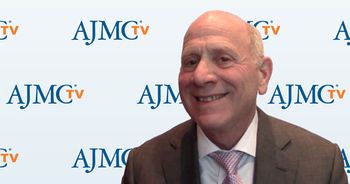
Charitable organizations are seeing more and more patients who need financial assistance, said Dan Klein, President and CEO, Patient Access Network (PAN) Foundation.
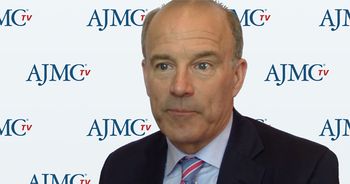
Social determinants of health are being carefully tended to in the Medicare populations, explained Lee Newcomer, MD, MHA, private consultant.

At the 15th Annual World Health Care Congress, CMS Administrator Seema Verma highlighted new policies and initiatives from CMS to ensure that programs are delivering high-quality care in a sustainable way as healthcare spending continues to grow at a faster rate than the overall US economy.

Results on bundled payment models are mostly promising, but not consistent. However, while most program results trend in the positive direction, many of studies on bundled payments may not capture the full picture.

A California foundation recently released a policy brief about 10 questions it hopes will serve as a guide for the rest of the country seeking to improve care for older populations with complex health needs in Medicaid managed long-term services and supports programs.

There are 6 key issues that market access teams are facing amid evolving marketplace trends in the pharmaceutical industry, said Douglas Long, BS, MBA, vice president, industry relations, IQVIA, when speaking at the headline session of the Academy of Managed Care Pharmacy’s Managed Care & Specialty Pharmacy Annual Meeting held April 23-26, in Boston, Massachusetts.
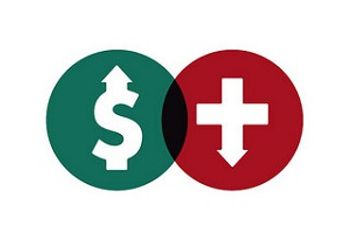
A new report suggests ways policy makers can support and advance value-based payment models so payment innovations can catch up to healthcare delivery innovations.
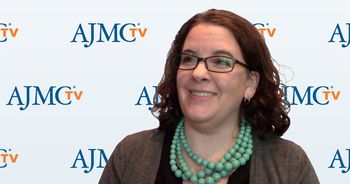
Leigh Purvis, director of Health Services Research at AARP Public Policy Institute, addresses the burdens of high prescription drug costs on Medicare beneficiaries.

An analysis of a hypothetical bundled payment that included drug costs would unfairly penalize practices based on patient mix and could destabilize the cancer care delivery environment, according to research published in the Journal of Oncology Practice.

President Donald Trump will deliver his first major speech on drug prices on April 26; a recent Medicare Payment Advisory Commission proposal would cut Medicare payment rates by 30% for some services at hospital-affiliated free-standing emergency departments; nursing homes routinely turn away patients seeking care if they are using medication-assisted treatment to treat substance use disorder for opioids.

Researchers found that cost-effectiveness calculations shifted dramatically when they assumed people with diabetes used continuous glucose monitoring (CGM) sensors for 10 days instead of 7 days. This is significant because Dexcom just received approval for a next-generation CGM system with a factory-calibrated 10-day sensor.

As increasing numbers of children with special healthcare needs move into Medicaid managed care, health plans can improve care coordination using evidence from Medicare.
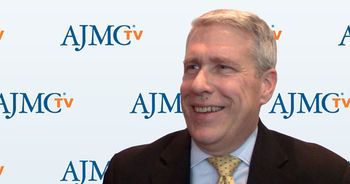
In order to make Medicare drug price negotiation a reality, the government has to have additional leverage to negotiate that it doesn't have, explained Ed F. Haislmaier, the Preston A. Wells Jr senior research fellow at the Institute for Family Community, and Opportunity at The Heritage Foundation.

Every week, The American Journal of Managed Care® recaps the top managed care news of the week, and you can now listen to it on our podcast, Managed Care Cast.


